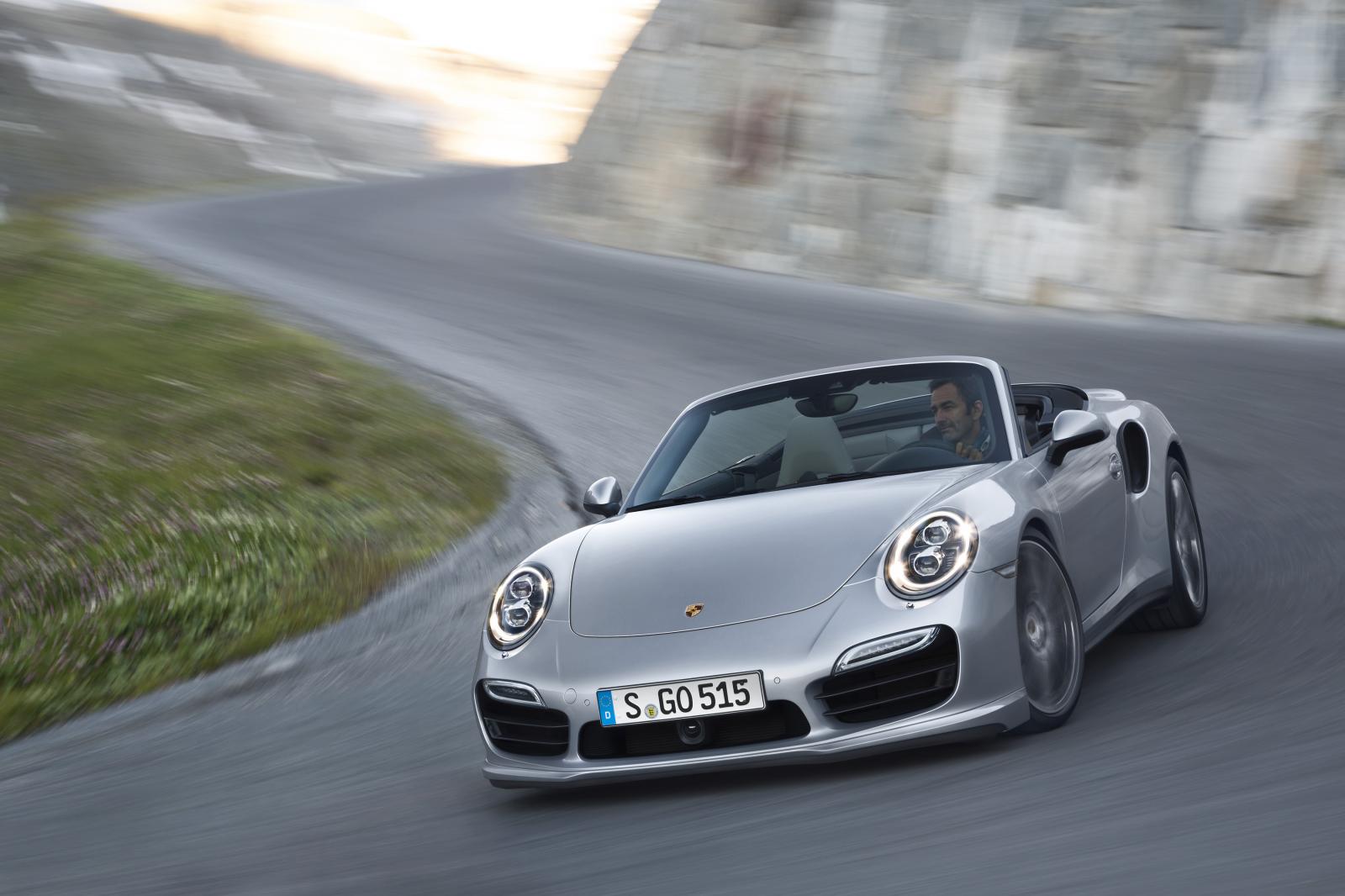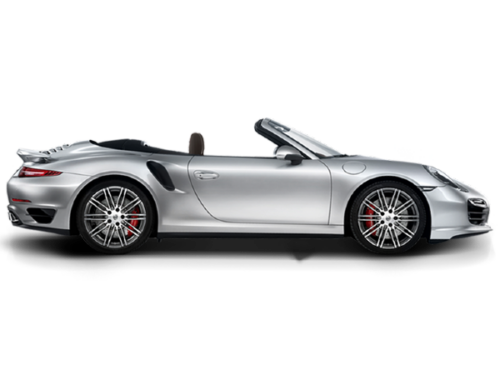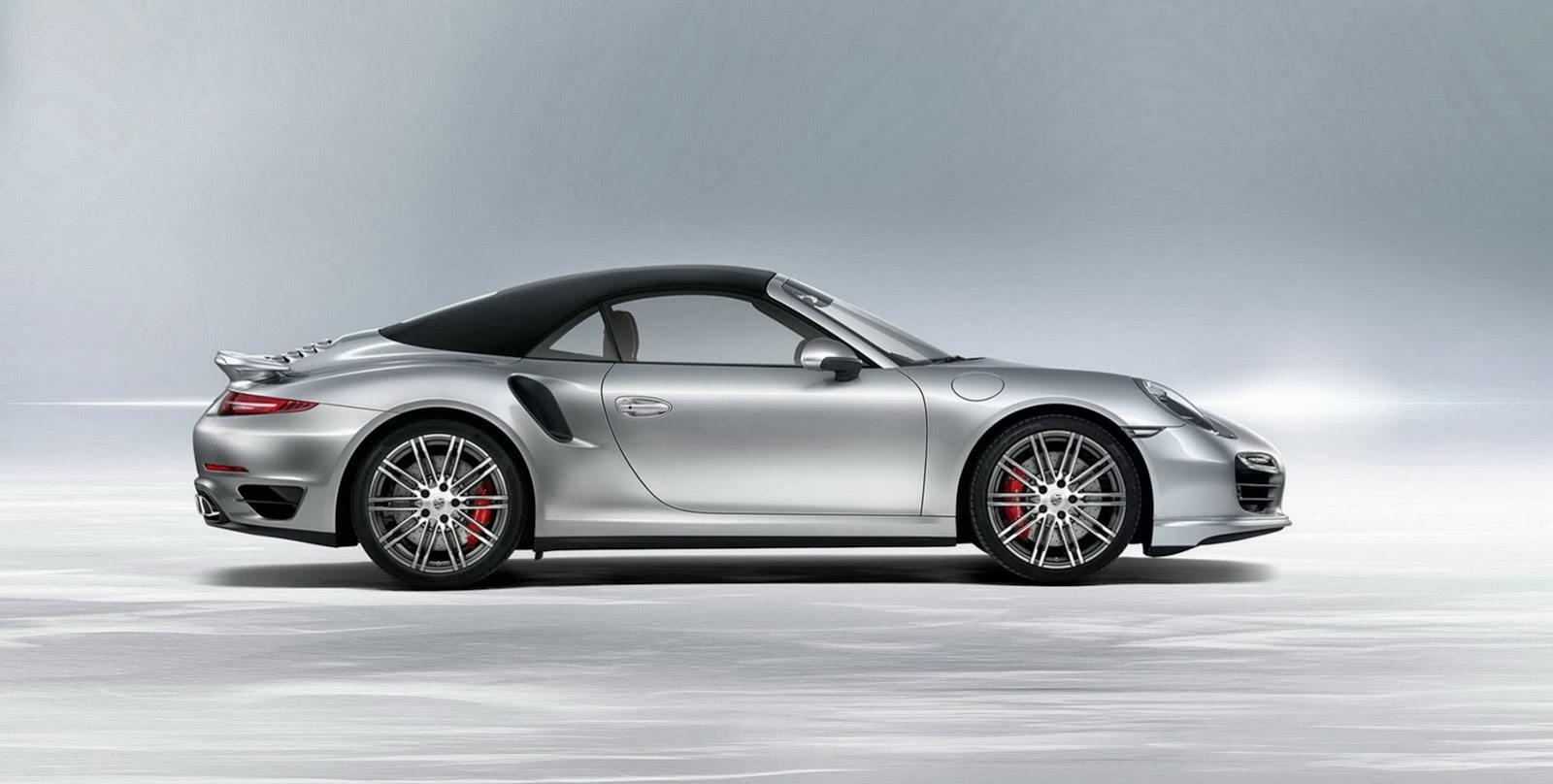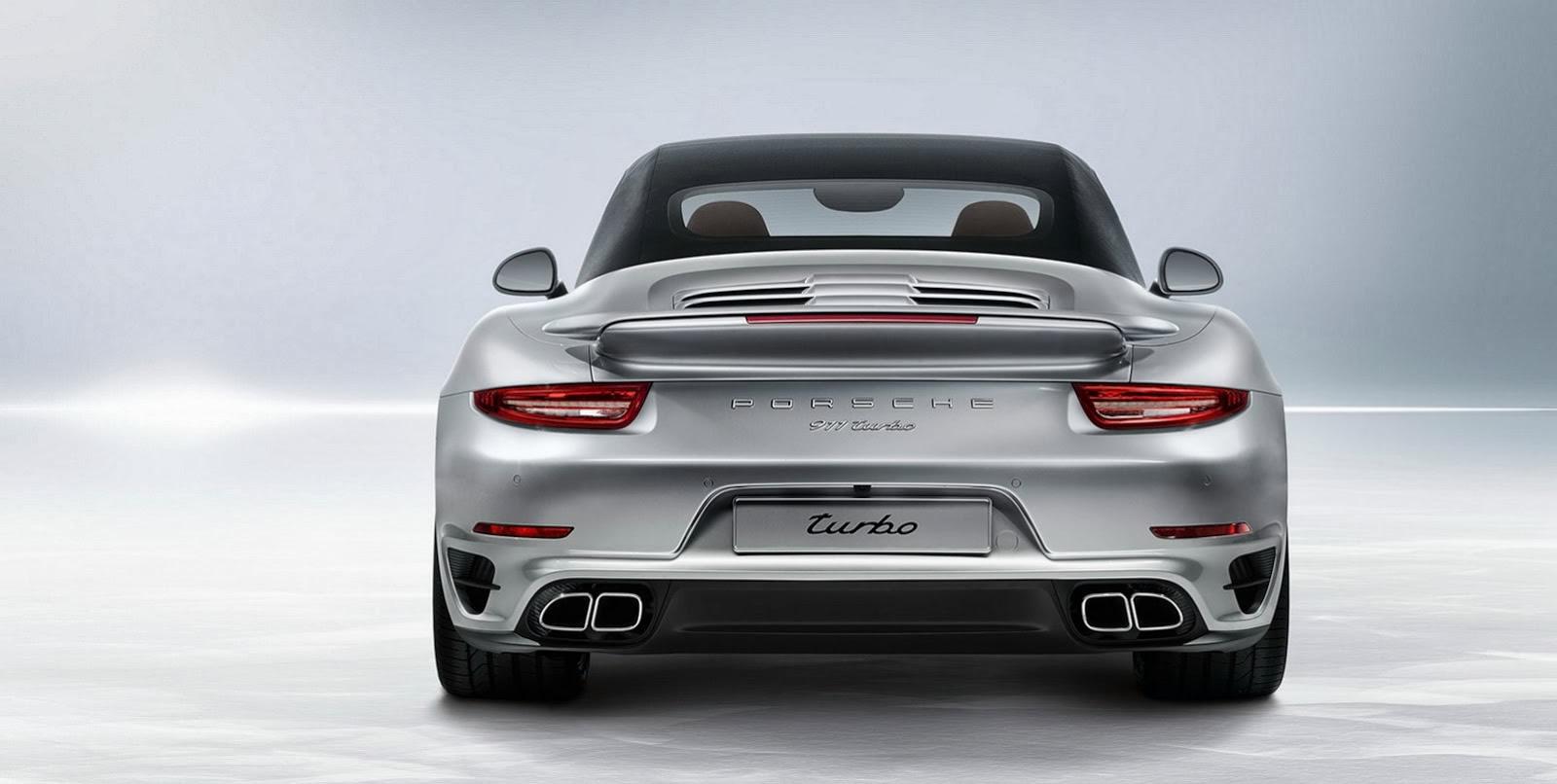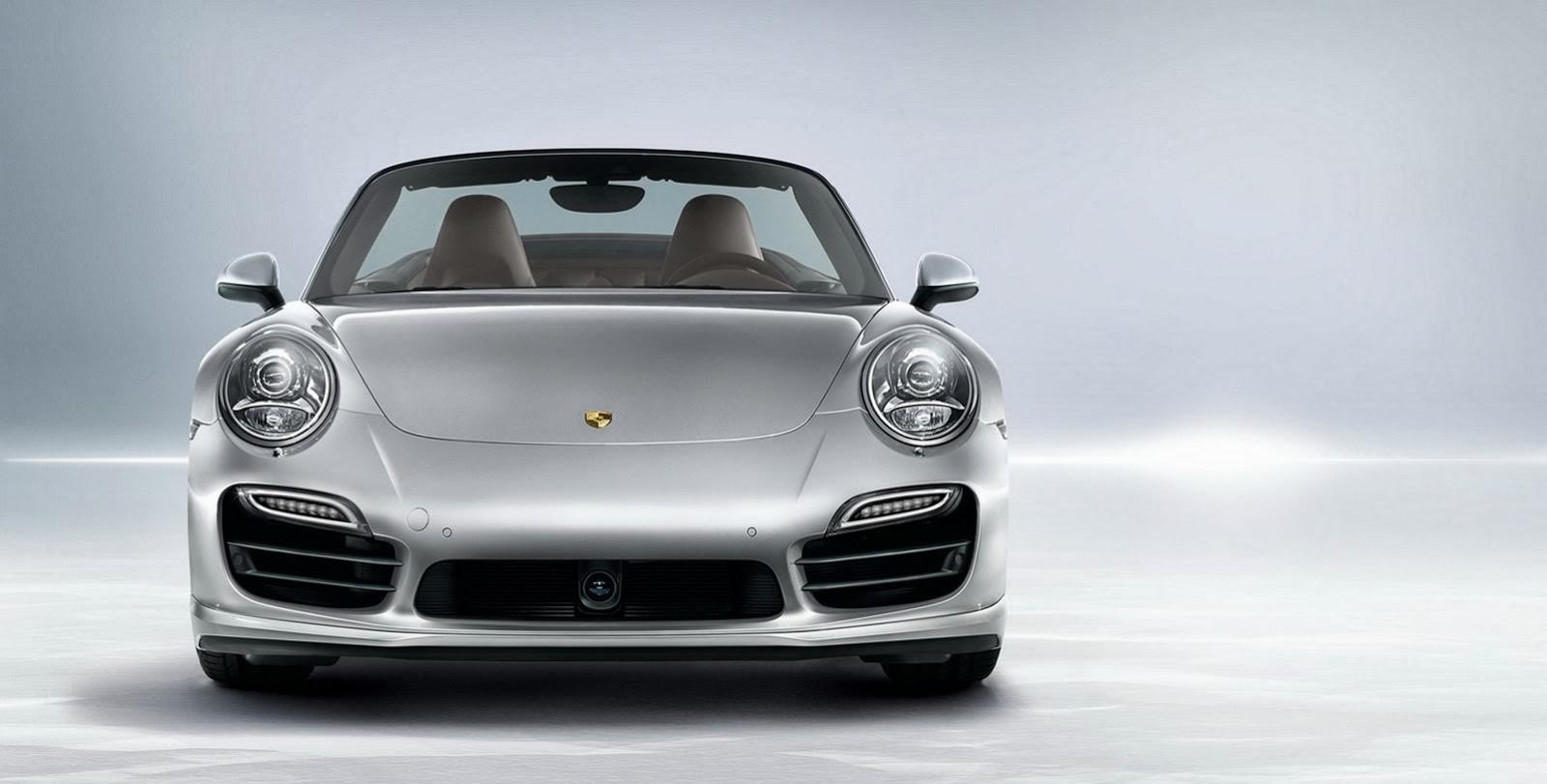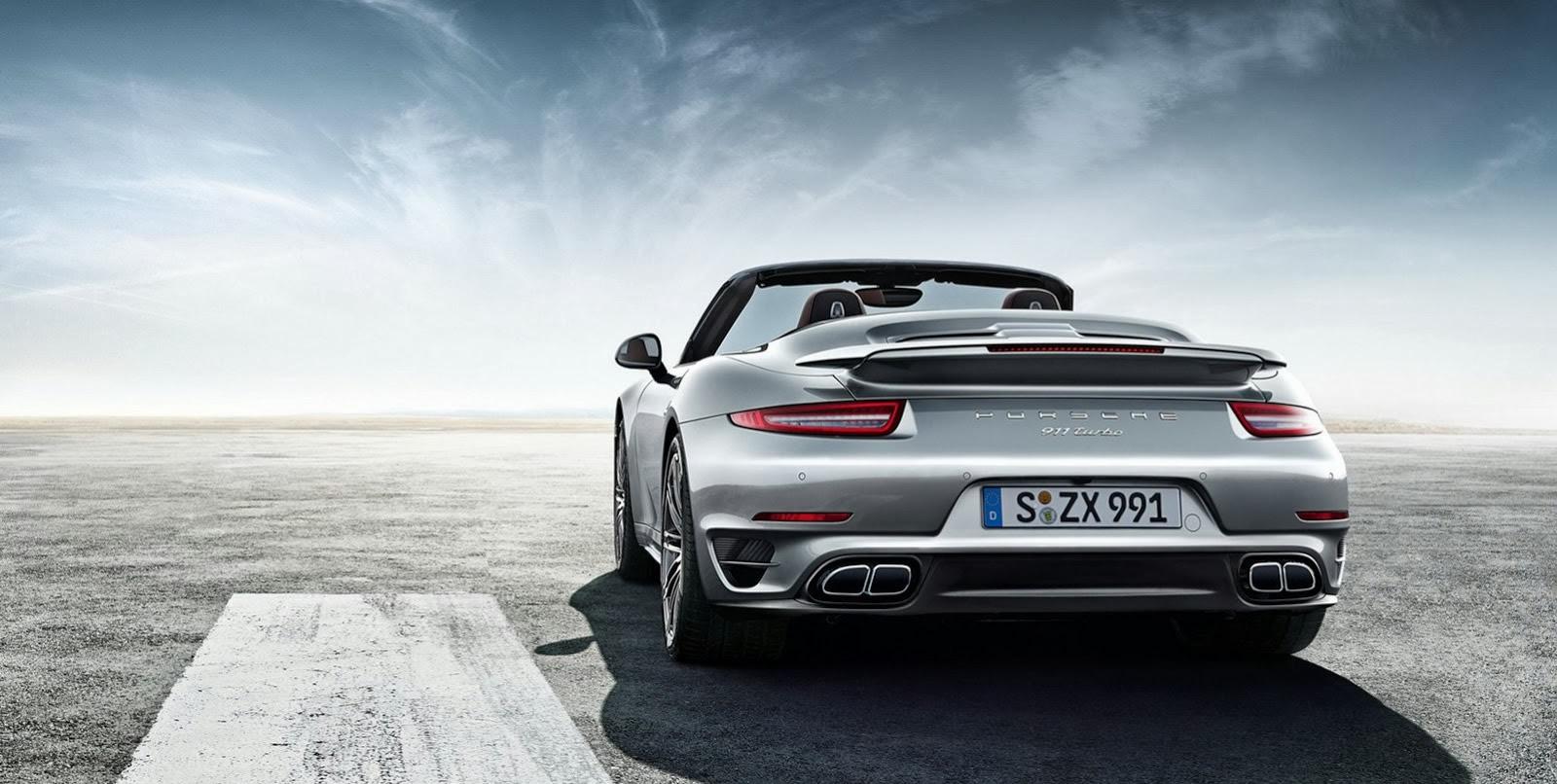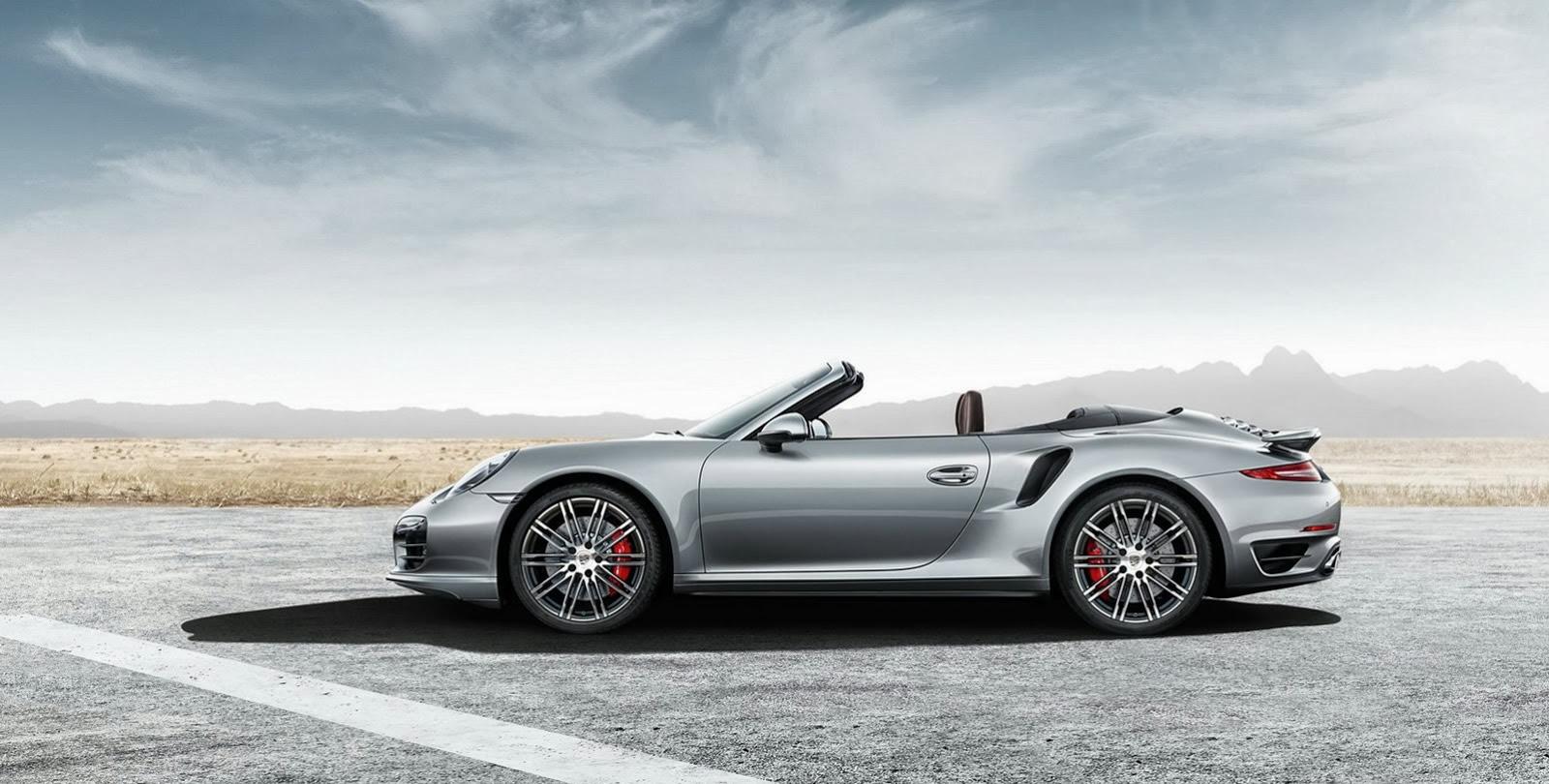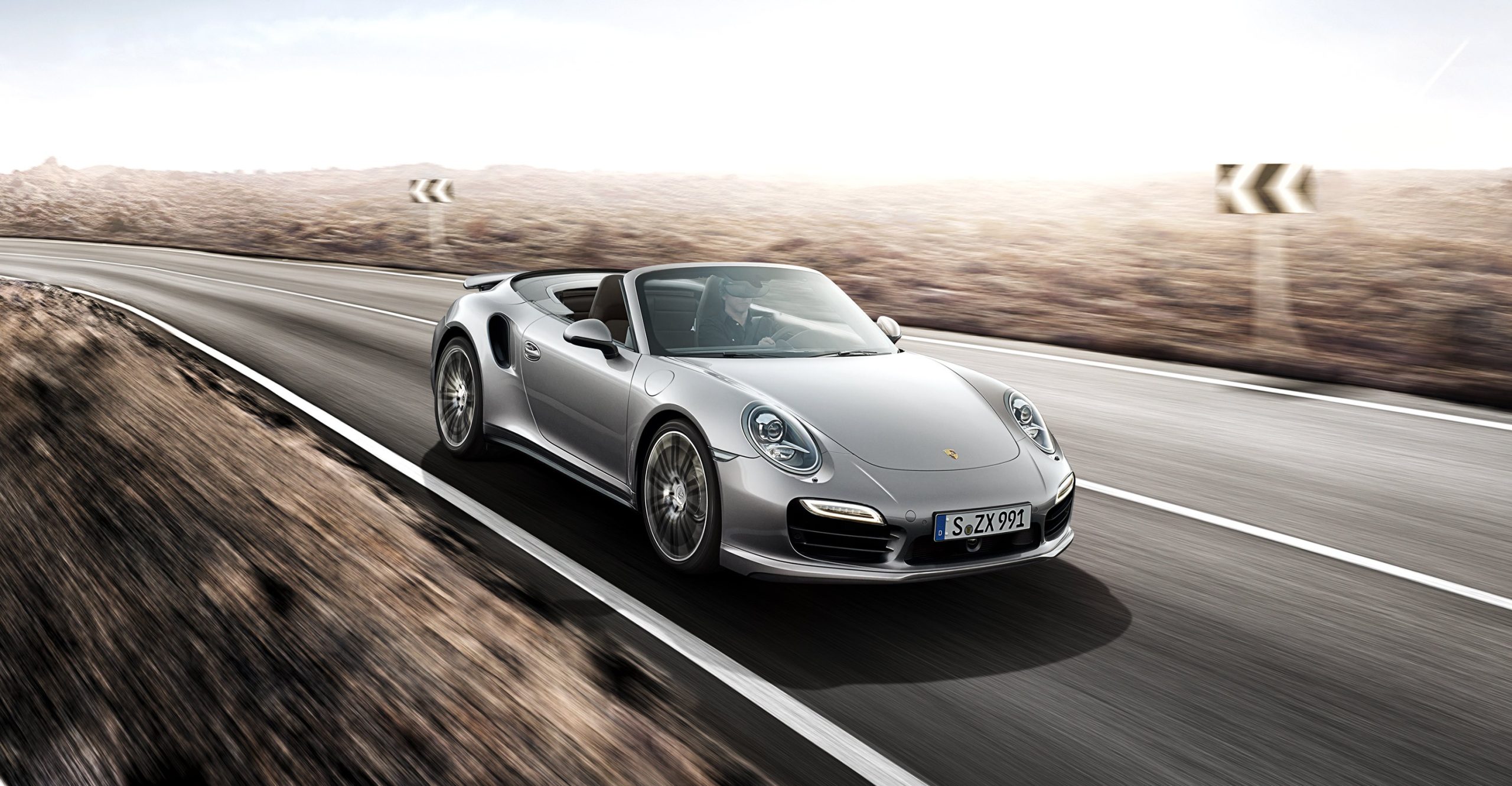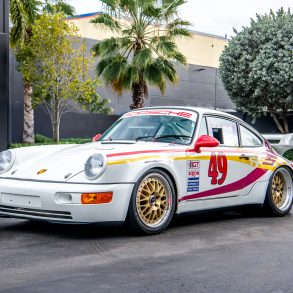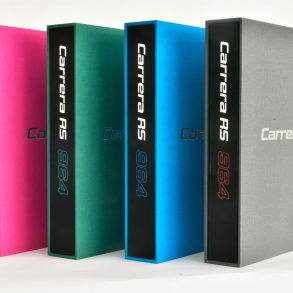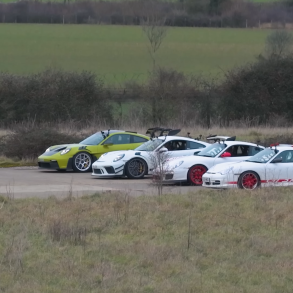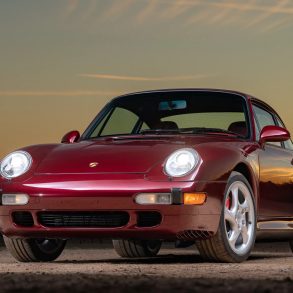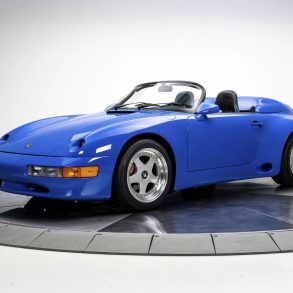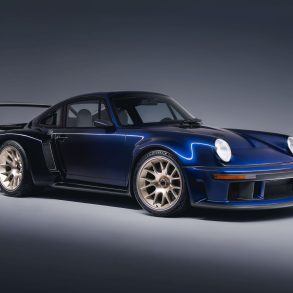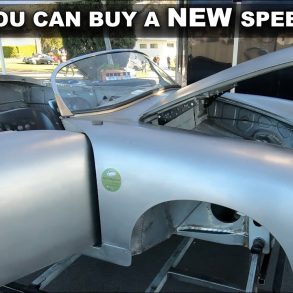(2014 – 2016) Porsche 911 Turbo Cabriolet (991) – Ultimate Guide
Open top driving has never been so scarily fast and comfortable. The turbocharged 3.8-litre six-cylinder engine delivers 520 bhp and it helps drivers accelerate from zero to 60 mph in just 3.1 seconds (there goes your hair style). Compared to the 997.2 Turbo Cabriolet the new Turbo Cab delivers 30 bhp more power and are 0.2 seconds faster in terms of their standard acceleration. It is also up to 15% more efficient and more luxurious and comfortable to boot.
Just like with the coupe, the new 911 Turbo Convertible will be about 1.1 inches wider than the base 911 Carrera 4 and will receive a new all-wheel-drive system, active rear-axle steering and adaptive aerodynamics. The main difference is, of course, the fabric top that opens and closes in just 13 seconds. With exception to its convertible top and the slight change in roofline that it brings, the 911 Turbo Cabriolet carries the exact same design language as its coupe brother. Also included is a newly developed power wind deflector that allows the driver to enjoy the sunshine without tons of turbulence and with minimal wind noise. The wind deflector takes just two seconds to deploy and stays active all the way up to 75 mph.
Just like its coupe sibling, the 911 Turbo Convertible is equipped with Porsche Active Aerodynamics (PAA), which includes a retractable, three-stage front spoiler and a deployable rear wing with three positions. At low speeds, the front spoiler and rear wing hide out of site to give the 911 a sleek look. At about 75 mph, they partially extended to add extra downforce with minimal drag. At higher speeds, the driver can fully extend the spoiler and wing, giving the 911 maximum downforce.
Under the hood, the Porsche 911 Turbo Convertible features a turbocharged 3.8-liter, six-cylinder engine that delivers 520 horsepower. This powerful six hooks up to a seven-speed PDK transmission. This drivetrain combines to zip the 911 Turbo Convertible to 60 mph in just 3.1 seconds and up to a top speed of 195 mph.
Whilst the Turbo and Turbo S models overlap into highly-strung supercar territory with their extravagant power and speeds, the 991.1 Turbo Cabriolet sits in a nice spot because you really do get the best of both worlds, with other world performance and the top down wind in your hair excitement coupled with all-wheel drive sure footedness. It is also tougher and more durable than most exotics or luxury GTs. With its dual-clutch all-wheel drive and a 7-speed double-clutch auto, it is also easy to drive whether creeping in traffic or hammering it hard. Plus you get a power-folding canvas top that seals you in nicely but which you can’t see out of very well towards the sides and rear. It’s quick, it’s solid, it’s a Porsche – what more do you want to know?
Pictures
Press Release
The dynamic range of the new 911 Turbo models multiplied by the driving pleasure offered by an open-top sports car: This is the succinct formula behind the two new leading 911 Cabriolet models. Some 50 years after the 911 first made its début and to coincide with the 40th anniversary of the 911 Turbo, the open-top versions of the 911 Turbo and 911 Turbo S are making their global début. The vehicles will be unveiled for the very first time at the 2013 Los Angeles Auto Show . By adding the two new leading 911 models into the mix, Porsche is doubling its offering of the top-of-the-range models to four versions.
In supplementing the range, the Porsche 911 Turbo Cabriolet and 911 Turbo S Cabriolet deliver the same blend of dynamism, performance and efficiency offered by the Coupé model unveiled a few months ago. Expressed in figures: The turbocharged 3.8-litre six-cylinder engine delivers 520 bhp (383 kW) in the open-top 911 Turbo and 560 bhp (412 kW) in the S model. The cars accelerate from zero to 100 km/h in 3.5 and 3.2 seconds respectively, reaching a top speed of up to 318 km/h. And all this while achieving fuel consumption figures below the ten-litre limit: Both of the new top-of-the-range Cabriolet models rest assured in the New European Driving Cycle (NEDC), boasting figures of 9.9 l/100 km (equivalent to 231 g/km CO2). When compared against the respective predecessor models, the new vehicles deliver 30 bhp more power and are 0.2 seconds faster in terms of their standard acceleration. They are also up to 15% more efficient.
Active rear-axle steering and active aerodynamics for even greater dynamism on the road
The driving dynamics offered by the two new top-of-the-range Cabriolet models is something that cannot be expressed in simple figures. Boasting PDK dual-clutch transmission as standard and the new PTM all-wheel drive, as well as featuring rear-axle steering and active aerodynamics, the open-top 911 Turbo models are now also establishing the leading Porsche technology in the open-top super sportscar segment. While the rear-axle steering has an immensely positive impact on handling for the two new super sportscars, both on the racetrack and during everyday use, the active aerodynamics can be tuned to offer optimum efficiency or driving dynamics at the touch of a button, depending on the driver’s wishes.
More than ever before, both of these new top-of-the-range models also make a clear visual statement about their performance. The characteristic, widely flared rear wings of the new 911 Turbo generation are 28 mm wider than those of the 911 Carrera 4 models – a virtually level surface of just over a hand’s width extends out from the C-pillar to the outer edge of the vehicle. The impressive effect of this width is accentuated still further when the top is down.
Another eye-catching feature of the 911 Turbo Cabriolet is the exclusive Porsche panel bow top with its lightweight magnesium frame. This innovative technology enables the Coupé-like arch to the roof to be achieved when the top is closed. This arch, which also offers advantages in terms of aerodynamics, is not feasible using conventional construction techniques. As with predecessor models, the roof opens and closes in around 13 seconds, at speeds of up to 50 km/h.
Premium furnishings in the interior
The interior of the new Cabriolet models follows that of the 911 Turbo Coupé. The S-model boasts a particularly extensive range of furnishings, with features including an exclusive interior in Black/Carrera Red and adaptive Sport Seat Plus seats with 18-way adjustment and memory. In addition, the backrest shells of the seats are leather trimmed with double cap seams, and various elements are achieved in a carbon look. As with the predecessor models, the Bose sound system is fitted as standard – and, for the first time, a Burmester system is also available on request. What’s more, the radar-controlled adaptive Cruise Control system, camera-based road sign and speed limit recognition function and reversing camera are also available as options.
The new top-of-the-range 911 Cabriolet models will be launched onto the market in December 2013. In Germany, the 911 Turbo Cabriolet costs EUR 174,431 and the new open-top 911 Turbo S EUR 207,989, inclusive of VAT and country-specific equipment in each case. In the United States, the 911 Turbo Cabriolet costs $160,700 and the new 911 Turbo S Cabriolet costs $193,900 plus destination charges of $950.


